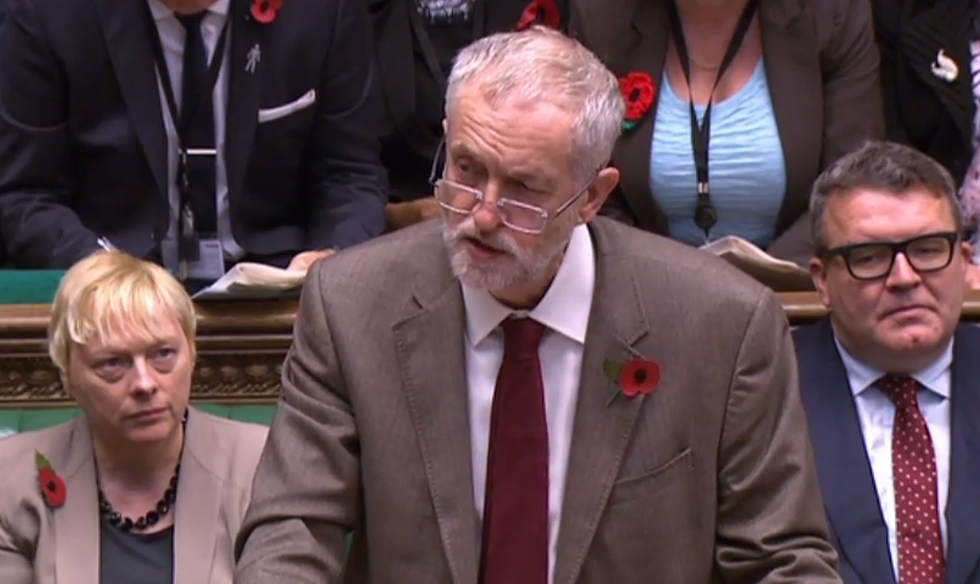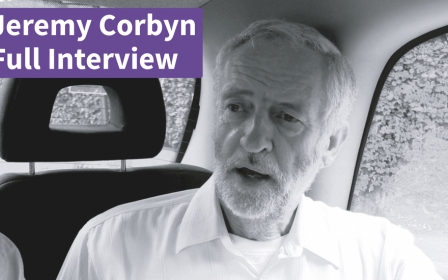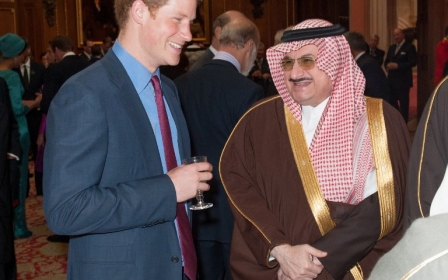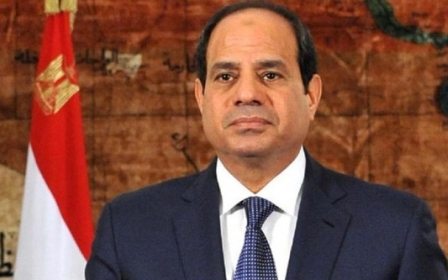Jeremy Corbyn says Sisi visit 'threatens Britain's national security'

Jeremy Corbyn, leader of the UK Labour Party, has condemned a visit by Egyptian President Abdel Fattah al-Sisi to the UK, saying that it showed “contempt for human and democratic rights”.
“David Cameron’s invitation to Britain today of the Egyptian president and coup leader Abdel Fattah al-Sisi shows contempt for human and democratic rights and threatens, rather than protects, Britain’s national security,” said Corbyn, in a press statement.
“Support for dialogue and negotiated conflict resolution in the Middle East is vital to us all. But to welcome and bolster with military support the coup leader who overthrew a democratically elected president in 2013 and has presided over the killing and jailing of many thousands since makes a mockery of government claims to be promoting peace and justice in the region.”
He added that rather than aiding the UK to tackle terrorism, Sisi’s government has provoked and encouraged conflict with militant groups and been a “key factor” in the spread of militant violence in the region.
“Rather than rolling out the red carpet to President Sisi, the prime minister should suspend arms exports to Egypt until democratic and civil rights are restored,” he said.
The visit to the UK by President Sisi has proved controversial, with a number of organisations producing public condemnations.
The European Working Group on Egypt, a "collective initiative" for "pan-European discussion of EU policy towards Egypt", formed by Anthony Dworkin of the European Council on Foreign Relations and Issandr El Amrani of the International Crisis Group, released a statement calling for Prime Minister David Cameron to press Sisi on human rights issues.
"At a time when President Sisi is seeking to use his interaction with foreign leaders to project an image of political legitimacy, you have an opportunity to show that Britain’s endorsement is not unconditional," read the letter. "You should make clear that Britain believes that an end to the policy of political repression is essential to restore the rule of law in Egypt and reverse the drift toward greater instability.
"In particular you should press President Sisi to take steps to release or grant amnesties to those people who remain in prison for political offences or for breach of the anti-protest law. In September, Mr Sisi released 100 prisoners ahead of his trip to the UN General Assembly in New York. He should be pressed to do more to correct the authoritarian drift of the last two years."
Last week, Labour’s shadow chancellor John McDonnell led calls for Sisi’s invitation to be rescinded.
In a letter published in the Guardian, McDonnell and 54 other signatories warned that Sisi was responsible for a “regime of terror.”
“We believe it violates the British values which the government claims to champion to welcome a ruler who has overthrown an elected government and instituted a regime of terror which has thrown back the cause of democracy in Egypt and the wider Middle East many years,” read the statement.
“While not necessarily supporting deposed president Morsi or the policies of his Freedom and Justice party, we note that he was democratically elected, and that his removal from office was effected by means of a military coup led by Sisi. Since then Sisi’s military-directed regime has massacred thousands of civilians.”
Speaking to the BBC on Wednesday, Sisi denied allegations of rights abuses telling the BBC that his country had “fair and transparent elections”.
“Today, we have also fair and transparent elections. This is our experience with democracy. The thing is, people imagine we can reach all the goals quickly – but this is not true,” he said, speaking to the BBC’s Lyse Doucet in Cairo, shortly before travelling to the UK
“Democracy is all about will and practice. We want the Egyptians to have the right to choose their leaders. Is this happening? Yes.”
In response to a question about a controversial anti-terrorism law adopted in Egypt – which punishes media outlets who spread “false” reports – he said that the conditions in Egypt, which is facing a militant insurgency in the Sinai Peninsula, required tough measures.
“If you meet ordinary Egyptians they tell you they are afraid of facing the same fate as other countries in the region,” he said. “They see the footage of people drowning in the seas on the way to Europe and they are scared this could happen to them.”
“Give me the environment you have in Europe and we wouldn’t need anything like this in Egypt.”
Middle East Eye propose une couverture et une analyse indépendantes et incomparables du Moyen-Orient, de l’Afrique du Nord et d’autres régions du monde. Pour en savoir plus sur la reprise de ce contenu et les frais qui s’appliquent, veuillez remplir ce formulaire [en anglais]. Pour en savoir plus sur MEE, cliquez ici [en anglais].




